- About Us
- Guidelines
-

The Author ensures that the research has been conducted responsibly and ethically with adherence to all relevant regulations. read more..
- For Authors
- For Reviewer
- Manuscript Guidelines
- Membership
-
- Journals
- Reprints
- e-Books
- Videos
- Indexing
- Contact Us
 COVID-19
COVID-19
-
Submissions
Editor in Chief
Hirotada TSUJII
Ph.D in Agriculture from Faculty of Agriculture, Tohoku University
Research Interest: Culture of mammalian embryo Metabolism of amino acid, carbohydrate and lipid in mammalian embryo Cow’s ovarian cyst Meat quality production of low cholesterol in poultry and pigs Collective behavior of Japanese native Kiso horse
Biography
Research Interest
Culture of mammalian embryo Metabolism of amino acid, carbohydrate and lipid in mammalian embryo Cow’s ovarian cyst Meat quality production of low cholesterol in poultry and pigs Collective behavior of Japanese native Kiso horse
Editorial Board
-
Labrini V Athanasiou
University of Thessaly, Greece
-
Sergio Ghidini
University of Parma, Italy
×Biography
Sergio Ghidini was born on the 3rd of June 1971 in Cremona (Italy). He is an Italian citizen. He graduated in Veterinary Medicine in September 1998 at the University of Parma. He discussed a masterwork entitled “Pigs’ transportation to the slaughterhouse: animal welfare and influence on carcasses’ quality”. The tutor was professor Roberto Chizzolini. Dr. Sergio Ghidini got his PhD in “Chemistry, Technology and Hygiene of Food” in 2001 at the University of Torino with a masterwork entitled “Residues of -lactam antibiotics in milk”. Since 2004 he is a researcher of the University of Parma, Faculty of Veterinary Medicine in Food Inspection. His research deals mainly with chemical contamination of food of animal origin. He studies new methods to certify the authenticity of typical products. He studies lipid oxidation in meat, meat products, milk and milk products. A particular interest was aimed to assess the safety of organic products of animal origin. In particular the presence of organochlorinated pesticides, PCBs, heavy metals and aflatoxins was studied in both conventional and organic milk and meat.
Research Interest
Veterinary Medicine -
David Forrest
Texas A&M University, USA
×Biography
Dr. David Forrest is a Professor in the Department of Animal Science. He holds a joint appointment with the Department of Large Animal Medicine and Surgery. He received a bachelor’s degree in animal science from Abilene Christian College, a master’s in physiology of reproduction from Texas A&M University and a doctorate in reproductive physiology from the University of Wyoming. Forrest teaches undergraduate courses in reproductive physiology and coordinates the curriculum and graduate studies for the department. He also conducts research to determine the hormonal mechanisms that control gonadal function and mating behavior through his appointment with Texas AgriLife Research. He serves as an advisor to the Saddle and Sirloin Club and to the Animal Science Graduate Student Association. Forrest is a past-president of the Texas A&M Chapter of the Honor Society of Phi Kappa Phi.

Research Interest
-
Ayman I Sayegh
Washington State University, USA
×Biography
My academic and professional background as a veterinarian and a neuroscientist, especially my training in rodent surgery and feeding behavior, enable me to carry this project successfully. During the past 16 years of research I have been studying the role of the nerves of the gastrointestinal tract in the reduction of food intake by the gut peptide cholecystokinin (CCK) using immunohistochemical detection of Fos-like immunoreactivity and measuring food intake in normal and surgically altered Sprague Dawley rats. My laboratory is considered the only feeding laboratory that utilizes enteric Fos-like immunoreactivity. I developed the intra-arterial catheterization technique. We established the use of the automated feeding system, the BioDAQ system, to measure and analyze food intake and many other feeding behaviors that we will determine in this proposal. We are the only laboratory in the feeding behavior area that uses intra-arterial catheterization to deliver satiety peptides to their specific gastrointestinal sites of action and we are the only laboratory that utilizes CCK-58 and GRP-29. We generated all of the feeding data by this technique and by these peptides as shown by our publication record.
Research Interest
Veterinary Medicine -
Peter S. Erickson
University of Illinois, USA
-
Hirotada Tsujii
Shinshu University, Japan
-
Evzen Korec
Charles University, Czech Republic
×Biography
Evžen Korec graduated with honours in Molecular Biology and Genetics from the Faculty of Science, Charles University in Prague (1976 – 1981). Between 1983 and 1992 he had been working as a researcher at the Institute of Molecular Genetics of the Czechoslovak Academy of Sciences, where he received the PhD degree in Oncology. After 1986, he stayed on longer-term research fellowships at top universities in Europe, especially in Germany (Göttigen), the UK (London) and France (Paris). He is also Czech entrepreneur, CEO, Chairman of the Board and the owner of the development company EKOSPOL. In 2015, he rescued Tabor Zoo from liquidation and sale of animals by buying the zoo from an insolvency administrator. Now, he is the owner and the director of Tabor Zoo, which focuses on preservation of endangered species. He is also a co-author of 11 patents and more than 20 research articles published in leading International scientific journals. The most important articles can be found in the database Publication in Medicine. Currently, he leads the research group which investigates the genetics and longevity in dogs.

Research Interest
Animal Genetics and Longevity -
Shafiqur Rahman
North Dakota State University, USA
×Biography
Dr. Shafiqur Rahman is an associate professor in the Department of Agricultural and Bio-systems Engineering (ABEN) at North Dakota State University (NDSU). For the last 20 years, he has been conducting research on agricultural waste management, water quality, and air quality areas. His current research at NDSU focus on measurement and reduction of nutrient runoff pollution from feedlot operations, environmental impact assessment of land application of manure, monitoring air quality and greenhouse gases from livestock production facilities; Particulate Matter (PM) quantification and characterization, manure and livestock carcass composting, and conversion of manure into a renewable energy source (biogas). He has published 49peer-reviewed articles either as the lead author or as co-author. He is extensively involved with the American Society of Agricultural and Biological Engineer (ASABE). Currently, he is serving as an Associate Editor in the Structures and Environment Division (currently PAFS-05) since 2010, and reviewing manuscripts in different high-quality journals including ASABE journals. He received 2017 ASABE outstanding Associate Editor award to serve as an Associate Editor. He is also serving as the Manuscript Editor of Journal of Animal Science and Technology (JAST). Currently, he is serving as USDA Agricultural Air Quality Task Force (AAQTF) member, which is the highest recognition of his expertise. He has served several times on the NSF, EPA, and USDA/NIFA grant review panels and other grant review process. He has extensive experience training undergraduate and graduate students in laboratory and field settings. He has supervised several visiting scientists from China, Turkey and S. Korea and continuing collaboration with them.
Research Interest
Animal Science; Agriculture -
Nelson Perez Guerra
University of Vigo, Spain
×Biography
Nelson Perez Guerra was born on September 30, 1996 in Santiago de Cuba, Cuba. He graduated as a Doctor of Food and Technology Science on 1st October 1999. From 1999 to date, he works as a Full Professor of Biochemistry at Vigo University.
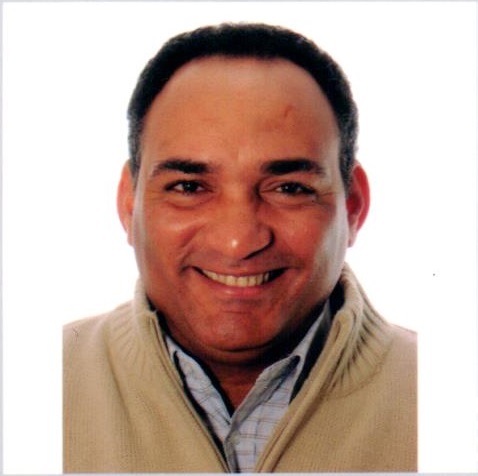
Research Interest
Food Science and Nutrition -
Zhicheng Xiao
Monash University, Australia
-
Alejandra COrdova Izquierdo
Metropolitan Autonomous University Unit Xochimilco, Mexico
×Biography
Alejandro Córdova Izquierdo has completed his Zootecnista veterinarian and the Universidad Autónoma Metropolitana Xochimilco in Mexico City, Mexico. Has expertise in Animal Reproductive Biology and Ph.D. in Animal Breeding at the Veterinary Faculty of the Complutense University of Madrid, Spain. Alejandro Córdova Izquierdo has published over 100 scientific papers in international journals and participated in national and international conferences. Alejandro Córdova Izquierdo is a currently Research Professor full-time in the Department of Agricultural and Animal Production of the Autonomous Metropolitan University of Xochimilco D. F., Mexico and the Academic Division of Agricultural Sciences at the Universidad Juarez Autonoma de Tabasco, Mexico.
Research Interest
Veterinary Medicine; Animal Science; Animal Reproduction -
Felisbina Luisa Queiroga
University of Tras-os-Montes and Alto Douro Quinta de Prados, Portugal
×Biography
Felisbina Luisa Queiroga is Associate Professor Habilitated at the University of Trás-os-Montes and Alto Douro (UTAD), Vila Real, Portugal in Veterinary Internal Medicine and Oncology. Graduated in Veterinary Medicine in 1994, Master Degree in Oncology in 2000 and PhD in Veterinary Sciences / Oncology in 2005. She was the Clinical Director of the Small Animal Service of the Veterinary Teaching Hospital in their University (2007-2010) and the Director of the Integrated Master in Veterinary Medicine (2011-2013). She has been working in several projects involving researchers of foreign countries and also the pharmaceutic industry. Her main research area is the study of prognostic factors with relevance as therapeutic targets in oncology. Another important topic of research is the study of spontaneous animal tumours as models to study human cancer in the scope of comparative oncology. Besides herspecial interest on Oncology (Veterinary and Comparative Oncology).
Research Interest
Veterinary Sciences -
Mireille Serhan
University of Balamand, Lebanon
×Biography
Mireille Serhan is an Associate Professor at the Faculty of Health Sciences, at the University of Balamand (Lebanon). Graduated in Agricultural Engineering in 2003, Master Degree in Food Engineering and Biotechnology in 2005 and PhD in the same field in 2009. She is currently the Director of the Nutritional Sciences Program at the University of Balamand (2010-To Date). She has been working in several projects involving researchers of foreign countries and also the food industry. Her research interests revolve around the area of preservation of indigenous dairy products, as well as new food products’ development.
Research Interest
Dairy Sciences -
Jovan A Bojkovski
Universtiy of Belgrade, Serbia
×Biography
Research Interest
Farm Animal Disease (Ruminants and Swine Disease) and Veterinary Genetic -
Fook Yee Chye
Universiti Malaysia Sabah, Malaysia
-
Alexey A Sazanov
Saint-Petersburg State Technological Institute, Russia
×Biography
Alexey A. Sazanov research activities were concentrated in three major fields – comparative and evolutionary genomics of mammalian and avian species, functional genomics with emphasis on revealing molecular basis of quantitative traits, developing of genotyping systems to detect SNP-alleles affecting susceptibilities to diseases and economically important traits in animals. The next step of his research activity was focusing on compositional chromosome mapping in avian species. They have shown that the DNA of various isochore families was shown to be distributed irregularly and similarly on chromosomes of domestic chicken and Japanese quail. In 1996 he was responsible for organizing of the Field Practice in Genetics at the Saint Petersburg State University. At that time he developed a course Chromosome Structure and was involved in teaching of the course General Genetics at the same university. His Postdoctoral Fellowship in National Institutes of Health was funded by Fogarty International Center. During this period, he was involved in investigations of cohesion of sister-chromatids. His special topic was revealing the DNA-sequences specifically attached to cohesion complex in metaphase. Beside that he did subcloning of mouse structure chromosome maintain gene. Alexey A. Sazanov main lecture courses are General Genetics, Molecular Biology, Microbiology, Biotechnology, Cell Biology and Data Mining in Biology at the bachelor and master level program “Biology Education.
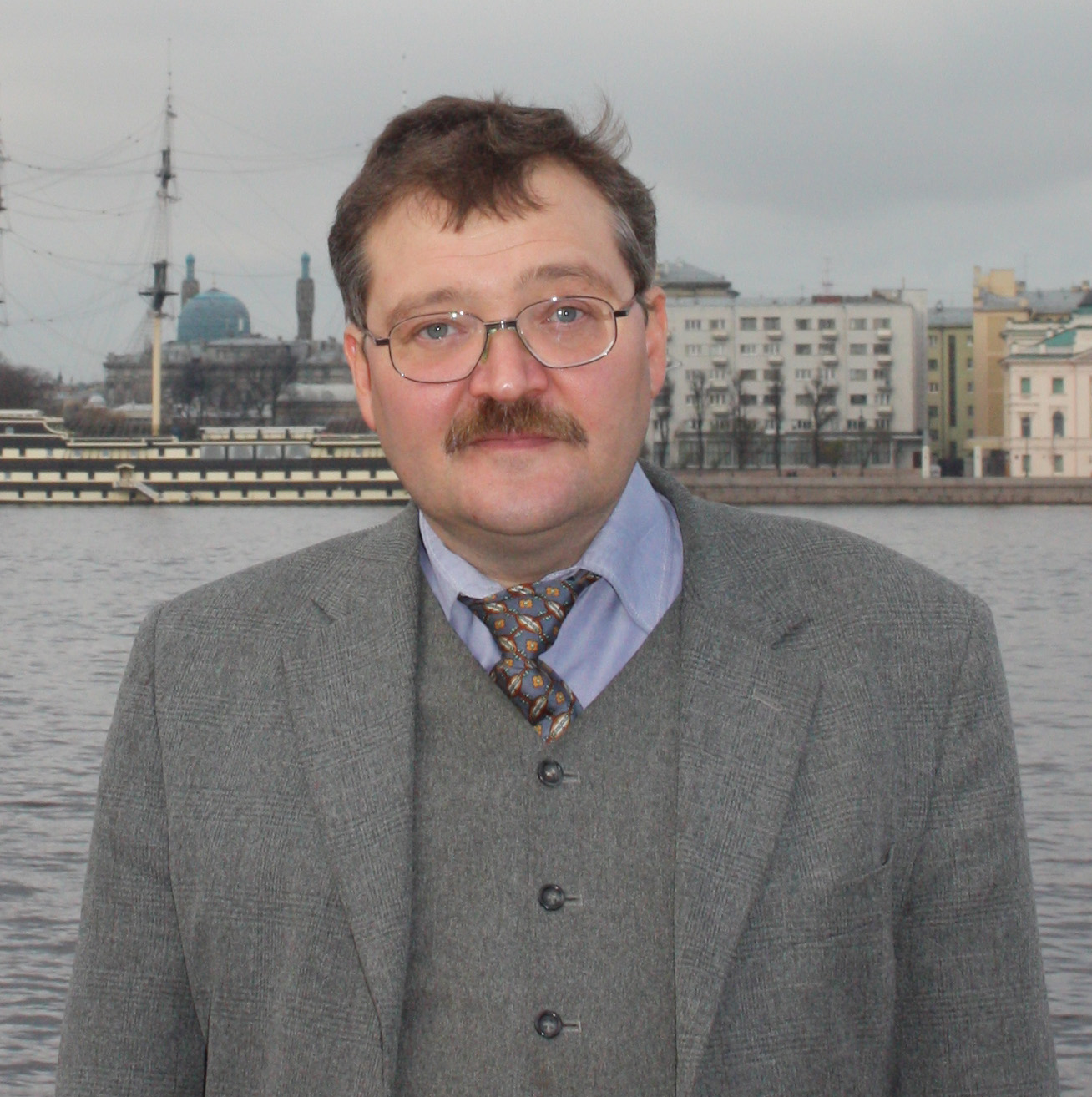
Research Interest
Animal Genetics -
Maria Norma Ribeiro
Federal Rural University of Pernambuco, Brazil
×Biography
Maria Norma Ribeiro is full professor at the Federal Rural University of Pernambuco in Conservation and Improvement of Animal Genetic Resources. Graduated in Animal Science from the Federal University of Paraíba (1987), masters degree in Animal Science from the Federal University of Paraíba (1990) and PhD in Animal Science from the Universidade Estadual Paulista Júlio de Mesquita Filho (1997), São Paulo State, Brazil. Specialization in Conservation of Animal Genetic Resources by the University of Córdoba, Spain (2002). Member of the board of the International Goat Association (2008-2016). Coordinator of the Small Ruminants in South America network. Member of the External Advisory Committee of the National Goat and Sheep Center. In 2003 received a medal from the Ibero-American Federation of Criollo Breeds for his contribution in breed conservation in the Ibero-American context. In 2006, she received the Octávio Domingues Award from the Brazilian Society of Animal Science as the supervisor the best thesis defended in 2005 which theme talked about a comparative study between the native breeds of goats from Brazil and Spain, developed with the support of Brazilian government. Post Doctor (2009) by the Technical University of Lisbon, with the study of Genetic Relations between Brazilian and Portuguese caprine breeds, using micro-satellites. Post-Doctor (2014) at the University of Florence, Italy, with a study on Ethnozootechny of threatened sheep breeds and implications for conservation. Winner of the Octavio Domingues Award of Zootechnist of the Year (2014) promoted by the Federal Council of Veterinary Medicine (CFMV). The mainly research area is conservation of animal genetic resources and Ethnozootecny.

Research Interest
Animal Science -
Ibrahim Canpolat
Firat University, Turkey
×Biography
Ibrahim Canpolat is a currently Research Professor full-time in the Department of Surgery of Veterinary Faculty of University Firat in Turkey. Ibrahim Canpolat has published over 100 scientific papers in international journals and participated in national and international conferences. My academic and professional background as veterinary general surgery , orthopethy, radiology and anesthesiology.
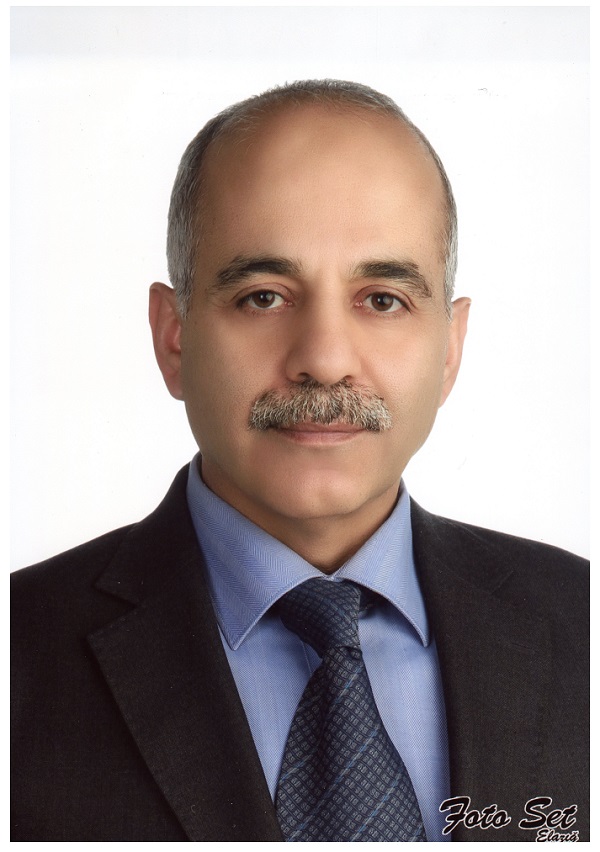
Research Interest
Veterinary Science -
Aysen Altiner
Istanbul University, Turkey
-
Huseyin Yilmaz
University of Istanbul, Turkey
×Biography
Huseyin Yilmaz was graduated from the Veterinary Faculty of Istanbul in 1984, and PhD in immunology from the Veterinary School at University of Bristol in 1993. He joined Department of Microbiology of Istanbul Veterinary Faculty in 2001 and established the Department of Virology in the Veterinary Faculty of Istanbul in 2006. As a principal investigator, he was a led a number of research projects and established research infrastructure to improve detection, epidemiology and prevention of major viral diseases and emerging viral infections affecting animals and publichealth. These projects were funded by TUBITAK and the University of Istanbul. He also established national and international collaboration with Turkish and European Union institutions through COST actions. Recently, we alsoestablished a bi lateral research link between The Pirbright Institute and Department of Virology has been funded by the British Council concerning the viral livestock diseases related to food security. After recent out breaks of lumpy skin disease in Turkey, he is also working on detection and prevention of transboundary emerging infections like LSD and is collaborating with the researchers in the Pirbright Institute, UK toapply a projecttoHorizon 2020 on LSD.
Research Interest
Veterinary Science -
Abdulwahab M M Kammon
National Center of Animal Health, Libya
×Biography
Abdulwahab Kammon is currently Associate Professor at the Department of Poultry Diseases, Faculty of Veterinary Medicine, University of Tripoli, Libya. After getting BVSc in 1994, he obtained his MVSc on 2003 from University Putra Malaysia and PhD on 2010 from GADVASU, India. Recently he is enrolled in the World Veterinary Education in Production Animal Health Certificate (Broilers and Breeders) and he is eligible for ACPV exam. Besides conducting research, his main responsibility is lecturing of UG and PG students on theory and practical topics of poultry diseases. He was appointed as a Vice Dean of the Faculty of Veterinary Medicine and Deputy Director of the National Center of Animal Health. His field work with colleagues included diagnosis, prevention and control of various bacterial and viral diseases. He was appointed by Libyan Government as an expert to solve problems facing poultry industry. He is a member of AAAP and some other organisations, author of many articles and reviewer of some scientific journals.
Research Interest
Veterinary Pathology -
Gamal Ahmed Ali ElSayad
Kafrelsheikh University, Egypt
-
Ibrahim Mohamed Aman
Kafrelsheikh University, Egypt
-
Alaa A El Kholy
Veterinary Serum & Vaccine Researches Institute, Egypt
-
Baher Abdel Khalek Mahmoud Effat
National Research Center, Egypt
×Biography
Baher Effat is a Research Professor of Food and Dairy Microbiology, National Research Centre, Egypt. Over 36 years of experience in Food and Dairy Bacteriology, he shared and supervised over than 3 Master and Ph.D Thesis in Food and Dairy sciences and more than 59 scientific publications in food and dairy microbiology, functional dairy products , probiotics and propionic acid bacteria and pathogenic bacteria and in Food and Dairy Products. He has shared in national and international programs and projects. He joined many international conferences and workshop, in addition to scientific activities. In addition he awarded for CAS-TWAS Visiting Scholar Fellowship From 03 Aug., 2006 to 31 October 2006.Training of young researchers and lecturers on many science-related subjects; including courses for: Microbiological Analysis of Food, Control of Bacteria, Contamination during Food Process and Isolation and Identification of Microorganisms. Member Whos Who in the World.
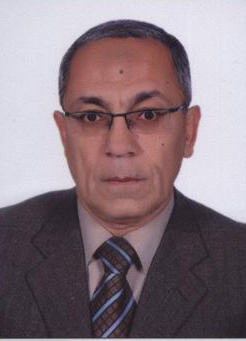
Research Interest
Food & Dairy Sciences, Probiotics ,Propionic acid bacteria ,Pathogenic bacteria in foods and dairy products -
Hussein Abdel-Hay Kaoud
Cairo University, Egypt
×Biography
Dr. Hussein Kaoud was the Chairman of the Department of Animal Health and Preventive Medicine at Cairo University. He has given lectures in Molecular Epidemiology, Biological Control of Pathogens and Biotechnology at different universities and has been member for many of National and International Publishing Houses, Reviewer and Editor for many indexed journals. Currently he works as Full Professor of Animal, Poultry, Aquaculture Health and Environmental Pollution, Dept. of Hygiene and Management Faculty of Veterinary Medicine, Cairo University, Egypt. His research interest is focused on Molecular Biology, Molecular Epidemiology and Advanced Technology of Basic Life Sciences after he had his D.Sc.
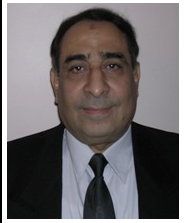
Research Interest
Veterinary Epidemiology; Animal; Poultry; Aquaculture and Environmental Hygiene -
Usama Mahmoud
Assiut University, Egypt
×Biography
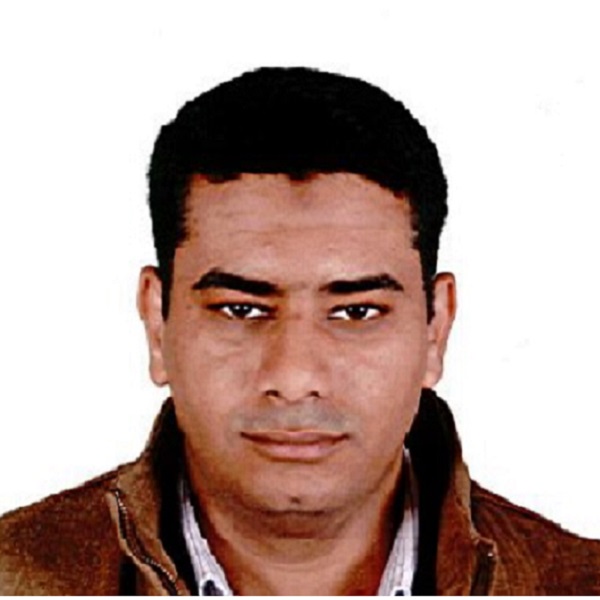
Research Interest
Animal Sciences; Animal Nutrition; Animal Husbandry; Poultry Science; Poultry Nutrition -
Fahim Aziz El-Dein Mohamed Shaltout
Benha University, Egypt
-
Ippala Janardhan Reddy
ICAR-NIANP, India
×Biography
I.J Reddy main research interests are to improve the reproductive efficiency of domestic birds and to find a better balance between production parameters, health, welfare and the environment. More specifically, his work focuses on determining the molecular mechanisms controlling reproduction in commercial avian species. This includes the study of neuroendocrine pathways involved in the activation and inhibition of the hypothalamo-pituitary-gonadal axis, and the effect of environmental stimuli on reproduction. On a more practical side, he is also actively involved in the design, development and validation of a new energy efficient lighting system (using LED technology) to be used by the poultry industry. To that end, his team has been studying the effects of light wavelength on reproduction and behavior in commercial avian species. I am actively involved in graduate training and teaching to the Field veterinarians, State Agricultural University Assistant professors on RIA, RNAi, Endocrinology, Animal Physiology and is mentoring the University students. The main missions are to encourage students to work and be familiar with the poultry industry and, with the guidance of students participate in the maintenance of poultry Physiology Research.
Research Interest
Veterinary Science; Animal Physiology
Associate Editors
-
C Edward Ferguson
McNeese State University, USA
-
Lilong Chai
University of Georgia, USA
-
Ali Dogan Omur
Ataturk University, Turkey
-
Jennifer Ann Spencer
Texas A&M AgriLife Research and Extension Center, USA
-
Mohamed Fawzy Ramadan Hassanien
University of Maryland, USA
-
Mary Ellen
University of Pennsylvania, USA
-
Kim Seon-Ho
The Ohio State University, USA
-
Zhentao Zhang
Vanderbilt University, USA
-
Xi Feng
Iowa State University, USA
-
Azarpajouh Samaneh
Iowa State University, USA
-
Cesare Castellini
University of Perugia, Italy
-
Figueiras Abdala Abraham
Instituto Tecnologico de Celaya, Mexico
-
Malwina Kamelska A
University of Warmia and Mazury, Poland
-
Youssef Attia
King Abdulaziz University, Saudi Arabia
-
Uthumporn Utra
Universiti Sains Malaysia, Malaysia
-
Guilherme Venturini
Eduvale College of Avare, Brazil
-
Shuying Li
Institute of food science and technology, China
-
Ahmed Marroki
University Djillali Liabes of Sidi Bel Abbes, Algeria
-
Romero Brandao-Costa
Federal University of Pernambuco, Brazil
-
Mayra A D Saleh
Sao Paulo State University, Brazil
-
Henrique Boll de Araujo Bastos
Universidade Federal do Rio Grande do Sul, Brazil
-
Andrea Gudan Kurilj
University of Zagreb, Croatia
-
Norizah MHD Sarbon
Universiti Malaysia Terengganu, Malaysia
-
Marko Samardzija
University of Zagreb, Croatia
-
Refaat M A Khalifa
Assiut University, Egypt
-
Shawky Mohamed Aboelhadid
Cairo University, Egypt
-
Motamed Elsayed Mahmoud
Sohag University, Egypt
-
Dr. Abeer M Abdalhamed
National Research Centre, Cairo, Egypt
-
Gamil Sayed Gamil Zeedan
National Research Centre, Egypt
-
Ahmed Ragab Gaber Ahmed
Beni-Suef University, Egypt
-
Fulya Ustun Alkan
Istanbul University, Turkey
-
Nezar Adili
habilitation universitaire, Algeria
-
Kardjadj Moustafa
Ecole Preparatoire de Science de la Nature et de la Vie, Algeria
-
G.R.K.Sharma
Sri Venkateswara Veterinary University, India
-
Farhad Mirzaei
Deemed University, India
-
Suneel Kumar Onteru
National Dairy Research Institute, India
-
Samir Kumar Das
Indian Veterinary Research Institute, India
-
Repalle Prasanna Kumar
Acharya N G Ranga Agricultural University, India
PubMed Indexed Articles
- Dendrimer-Based Nanomedicine (Paramagnetic Nanoparticle, Nanocombretastatin, Nanocurcumin) for Glioblastoma Multiforme Imaging and Therapy
PMID: 35237758 - Glioblastoma: Targeting Angiogenesis and Tyrosine Kinase Pathways
PMID: 32924014 - The Conflict in East Ukraine: A Growing Need for Addiction Research and Substance Use Intervention for Vulnerable Populations
PMID: 32363331
Track Your Article
Editor In Chief
Hirotada TSUJII
Ph.D in Agriculture from Faculty of Agriculture, Tohoku University

Maria Kuman
Research Professor, PhD, Holistic Research Institute

Jiexiong Feng
Professor, Chief Doctor, Director of Department of Pediatric Surgery, Associate Director of Department of Surgery, Doctoral Supervisor Tongji hospital, Tongji medical college, Huazhong University of Science and Technology
Muhammad Atiqullah
Senior Research Engineer and Professor, Center for Refining and Petrochemicals, Research Institute, King Fahd University of Petroleum and Minerals (KFUPM), Dhahran, Saudi Arabia

Ian James Martins
Fellow of International Agency for Standards and Ratings (IASR), Edith Cowan University, Sarich Neuroscience Research Institute

Thomas F George
Chancellor Emeritus / Professor Emeritus of Chemistry and Physics, University of Missouri–St. Louis
.jpg)
Jose Crisologo de Sales Silva
Ph.D in Science from the Federal University of Alagoas, UFAL, Brazil

Naglaa Sami Adbel Aziz Mahmoud
Assistant Professor in College of Architecture, Art and Design

Tong-Ching Tom Wu
Interim Dean, College of Education and Health Sciences, Director of Biomechanics Laboratory, Sport Science Innovation Program, Bridgewater State University

Dr. Jose Luis Turabian
Professor of numerous training courses in Family Medicine
Dariusz Jacek Jakóbczak
Assistant Professor, Department of Electronics and Computer Science

Önder Pekcan
Emeritus Professor of Physics, Kadir Has University, Turkey
Quick Links
-
 Editorial Board Registrations
Editorial Board Registrations
-
 Submit your Article
Submit your Article -
 Best Paper of the Volume
Best Paper of the Volume -
 Reprints
Reprints -
 Refer a Friend
×
Refer a Friend
×Refer a Friend
-
 Advertise With Us
×
Advertise With Us
×Advertise With Us
Our Recent Edition
Top Editors
-

Zhengcai Lou
Wenzhou Medical University, China
-

Ya Lie Ku
Fooyin University, Taiwan
-

Volkan Sarper Erikci
Saglik Bilimleri University, Turkey
-
Tomasz Karski
Vincent Pol University, Poland
-
.jpg)
Thamil Selvam
National Defence University of Malaysia, Malaysia
-

Tarik Baykara
Dogus University, Turkey
-

Steven Smith
Hope College, USA
-

Stanislav Grigoriev
Russian Academy of Sciences, Russia
-

Shi Zhou
Southern Cross University, Australia
-

Shewikar Farrag
Umm Al-Qura University, Saudi Arabia
-

Ray Marks
City University of New York, USA
-

Praveen K Maghelal
Khalifa University of Science & Technology, United Arab Emirates
-
Peng Yu
Hebei Normal University, China
-
Nawal Mohamed Khalafallah
Alexandria University, Egypt
-

N K Kishore
Indian Institute of Technology Kharagpur, India
-

Muzzalupo Innocenzo
Council for Agriculture Research and Analysis of Agri Economy (CREA), Italy
-

Muhammad Atiqullah
King Fahd University of Petroleum and Minerals, Saudi Arabia
-

Mohamed A Rashed
King Abdulaziz University, Saudi Arabia
-

Maurice E Morgenstein
University of Oregon, USA
-

Martin Sweatman
University of Edinburgh, Scotland
-
.bmp)
Maria Kuman
University of Tennessee, USA
-
.jpg)
Manuel Velasco
Central University of Venezuela, Venezuela
-
.png)
Majid Monajjemi
Islamic Azad University Central Tehran Branch, Iran
-
.jpg)
Luisetto Mauro
Tourin University, Italy
-

Lloyd Arthur Jenkins
Teaching & Public Speaking, Spain
-
Leonardo Milella
Paeditric Hospital "Giovanni XXIII", Italy
-

Kanakis Dimitrios
University of Nicosia, Cyprus
-

Jose Luis Clua Espuny
Universidad Miguel Hernández de Elche, Spain
-

John Korstad
Oral Roberts University, USA
-

Jinliang Zhang
Beijing Normal University, China
-

Irina Koretsky
Howard University, USA
-
Ian James Martins
Edith Cowan University, Australia
-

Hamid Yahiya Hussain
Dubai Health Authority, UAE
-

Gundu HR Rao
University of Minnesota, USA
-
GP Karmakar
Indian Institute of Technology Kharagpur, India
-

Ghassan George Haddad
Serhal Hospital, Lebanon
-

George Gregory Buttigieg
University of Malta, Malta
-

Fumihiko Hinoshita
National Center for Global Health and Medicine, Japan
-

Freida Pemberton
Molloy College, USA
-

Francisco Welington de Sousa Lima
Federal University of Piauí, Brazil
-

Florian Bert
Krankenhaus Nordwest Hospital, Germany
-
.png)
Fathi Habashi
Laval University, Canada
-

Dora Alicia Cortes Hernandez
Cinvestav-Unidad Saltillo, Mexico
-
.png)
Daniel Kinem
UPMC Hamot Neuroscience Institute, USA
-

Conxita Mestres Miralles
Ramon Llull University, Spain
-
Barry Kraynack
White Bear Associates, LLC, USA
-

Arkady S Voloshin
Lehigh University, USA
-

Alireza Heidari
California Southern University, USA
-
.png)
Alex Guskov
Institute of Solid State Physics of RAS, Russia
-

Alan Diego Briem Stamm
University of Buenos Aires, Argentina
-
Ahmed Nasr Ghanem
Mansoura University, Egypt
-

Afaf K El Ansary
King Saud University, Saudi Arabia
-

A Bernardes
University of Coimbra, Portugal
 a Creative Commons Attribution 4.0 International License. Based on a work at www.crimsonpublishers.com.
Best viewed in
a Creative Commons Attribution 4.0 International License. Based on a work at www.crimsonpublishers.com.
Best viewed in 

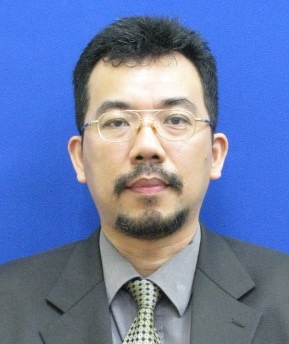



























.jpg)






